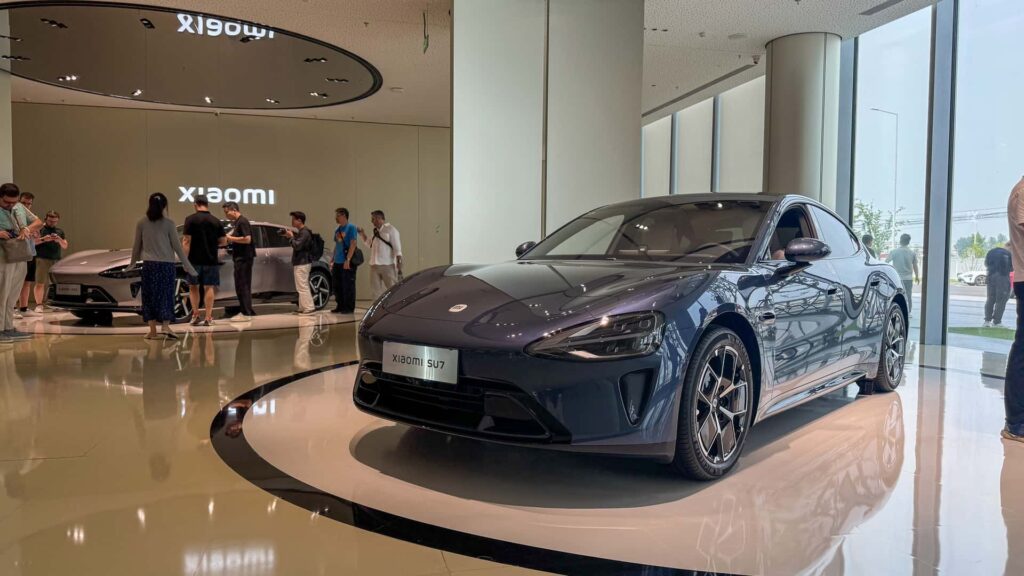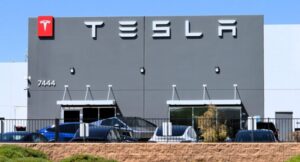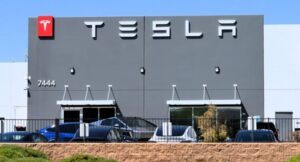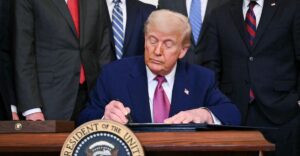
China has rapidly emerged as a global leader in the electric vehicle (EV) industry, a development that has left Ford CEO Jim Farley both impressed and introspective. During a recent interview at the Aspen Ideas Summit, Farley described his visits to China as “the most humbling thing” he has ever experienced. He praised the advanced technology, cost efficiency, and quality of Chinese electric cars, underscoring the formidable challenge they pose to Western automakers.
Speaking with journalist Walter Isaacson, Farley revealed that he has visited China six or seven times in the past year to assess the competition. His observations highlight the significant advancements in in-vehicle technology made by Chinese manufacturers. “They have far superior in-vehicle technology,” Farley noted, emphasizing the sophistication of Chinese EVs compared to their Western counterparts.
China’s Technological Leap in the Auto Industry
The global auto industry has long aspired to create “smartphones on wheels,” vehicles that integrate advanced digital features and software capabilities. While companies like Tesla have made strides in this direction, many others are still catching up. According to Farley, Chinese firms have already surpassed these goals, offering a digital experience that sets a new standard.
In the U.S., in-car technology often includes basic features like media players and navigation systems. In contrast, Chinese vehicles integrate seamless digital experiences, as Farley explained: “Huawei and Xiaomi are in every car. You get in, you don’t have to pair your phone. Automatically, your whole digital life is mirrored in the car. You have an AI companion that you can talk to … All the automatic payment is already there. You can buy movie tickets. It has facial recognition so it knows who’s in which seat and which media you like.”
The Competitive Edge: Cost and Quality
The competitive advantage of Chinese automakers extends beyond technology. Thanks to substantial government subsidies and vertical integration, they have achieved remarkable manufacturing scale, driving down costs without compromising quality. Farley expressed concern about the implications for Western automakers: “Their cost, their quality of their vehicles is far superior to what I see in the West. We are in a global competition with China, and it’s not just EVs. And if we lose this, we do not have a future at Ford.”
BYD, China’s biggest EV maker, famously sells the Seagull hatchback for under $10,000 domestically. It costs around $26,000 in Europe, where it recently debuted.
While some analysts argue that the price war in China’s car industry is unsustainable and may lead to market consolidation, the immediate challenge remains. Chinese car companies are building high-quality vehicles, expanding their global footprint, and edging out foreign competitors from their home market. Although high tariffs currently limit their entry into the U.S., industry experts anticipate Chinese cars will eventually reach American shores.
Ford’s Strategic Response
In response to the competitive pressure, Ford is actively learning from China. Farley shared that he brings his leadership team to China to test-drive the latest vehicles, selecting a few to bring back to Detroit for further analysis. “Then we pick the four or five that we love and then we put them on a plane and fly them to Detroit. And then we drive the crap out of them, and then we take them apart and we put them back together,” he explained.
Ford is also developing a $30,000 electric car, which Farley referred to as “the Model T of EVs.” Additionally, the company is investing in the production of cheaper lithium iron phosphate (LFP) batteries in Michigan through a licensing agreement with China’s CATL. Despite political controversies surrounding this partnership, Ford maintains that it is essential for building affordable EVs in the U.S.
“People don’t realize that China has IP that America needs,” Farley noted. “I think we just need to be more humble as a country that they do things really well, that we need to learn.”
As Ford navigates the shifting landscape of the global auto industry, it is clear that the insights gained from China will play a crucial role in shaping its future strategies. The company’s efforts to integrate these lessons into its operations underscore the broader challenge facing Western automakers as they strive to compete with China’s burgeoning EV sector.





